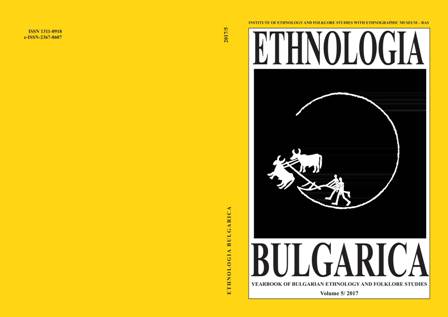Bulgarian Ethnology in the Transition Period
Bulgarian Ethnology in the Transition Period
Author(s): Rachko PopovSubject(s): Anthropology, Customs / Folklore, Ethnohistory, History of ideas, Local History / Microhistory, Oral history, Political history, Social history, Cultural Anthropology / Ethnology, Culture and social structure
Published by: Институт за етнология и фолклористика с Етнографски музей при БАН
Keywords: ethnography;traditional cultures;Bulgarians;
Summary/Abstract: This article outlines the scientific problems with which Bulgarian ethnologists were occupied during the transitional years after 1989. The study of Bulgarians’ traditional culture continued and as a result were published in four volumes from the series ‘Regionalni etnolozhki izsledvania’ [Regional Ethnological Investigations], dedicated to the traditions of the inhabitants in the mountain regions of Strandzha, Rhodope, Sakar and Sredna Stara Planina [Middle Balkan]. Volumes from the series ‘Etnografski problemi na narodnata kultura’ [Ethnographic Problems of Folk Culture] were also regularly published in that period. Seven ethnographic conferences in various towns in the country were carried out. Special attention was paid to the different minorities with whom Bulgarians have traditionally lived – Gypsies, Armenians, Jews, Sarakatsani, Turks and Greeks. Many scientific investigations were dedicated to their traditional and contemporary culture and in the halls of the National Ethnographic Museum there were some respective exhibitions. Other spheres of ethnological research at that time included the study of urban culture, of migration processes in the country and abroad, and gender studies.
Journal: ETHNOLOGIA BULGARICA. Yearbook of Bulgarian Ethnology and Folklore
- Issue Year: V/2017
- Issue No: 1
- Page Range: 3-15
- Page Count: 13
- Language: English
- Content File-PDF

